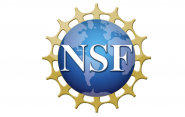With NSF grant, Dionysis Kalogerias works toward reliable wireless autonomous networks

From drones and smartphones to self-driving cars and the Internet of Things, wireless autonomous networked systems are all around us. They're performing all kinds of often complex and pervasive data-centric manipulations, such as sensing, processing, learning, and decision-making.
 With a $600,000 grant from the National Science Foundation, Dionysis Kalogerias is working toward making these systems more reliable. The more dependent we are on this technology, the assistant professor of electrical engineering says, the more important it is that it’s robust. For instance, he said, your 5G mobile phone – pretty reliable under average conditions - might lose its signal while exiting a building. If you exit buildings frequently, you want to still be able to communicate effectively; your phone should keep working even when operating conditions are less than ideal.
With a $600,000 grant from the National Science Foundation, Dionysis Kalogerias is working toward making these systems more reliable. The more dependent we are on this technology, the assistant professor of electrical engineering says, the more important it is that it’s robust. For instance, he said, your 5G mobile phone – pretty reliable under average conditions - might lose its signal while exiting a building. If you exit buildings frequently, you want to still be able to communicate effectively; your phone should keep working even when operating conditions are less than ideal.
“The performance of a wireless device can sometimes be excellent, but sometimes bad,” Kalogerias said. “But you would like it to be good enough, most of the times.”
To that end, Kalogerias proposes to develop a risk-aware framework that mitigates the uncertainties inherent to wireless systems, without being too pessimistic. The goal is to design systems that can anticipate bad events and ensure that even when communication channel conditions are bad, users can still communicate effectively, but without significantly hindering performance under nominal conditions. Kalogerias aims for this work to establish a new paradigm in wireless systems resource allocation.
“I'm trying to bring this systematically to the world of communications or, more generally, wireless systems engineering,” he said. “You try to build systems that are risk-aware, which means that you care about bad events that might happen in the system and you want to be proactive with respect to those bad events, without affecting service quality under the good events too much. Resources have to be allocated proactively, so that you can anticipate bad events and hedge against them effectively. This is somewhat similar to finding good asset allocation strategies for a financial portfolio in an uncertain market.”
The same principles of the system could be applied to numerous devices, like drones and robotic wireless systems. The project will also be relevant to several areas beyond wireless autonomy — such as finance, economics, energy, and robotics — and may trigger new developments in the intersection of communications, information theory, statistics, and optimization, as well as inspire new tools in risk-aware and constrained learning.

